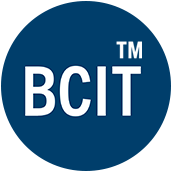
Home > Study in Canada > George Brown College - Casa Loma Campus > Advanced Diploma in Electromechanical Engineering Technology - Building Automation
Advanced Diploma in Electromechanical Engineering Technology - Building Automation
 George Brown College - Casa Loma Campus, Canada
George Brown College - Casa Loma Campus, Canada

CAD 18361
Annual Tuition Fee

CAD 110 Waived
Application Fee

36 months
Duration

6
IELTS

80
TOEFL

60%
Min GPA
Program Overview
The Electromechanical Engineering Technology – Building Automation three-year advanced diploma program provides you with the technical skills you need to succeed in the job market.
Building automation systems don't just control the basics: they regulate airflow, monitor energy use, and integrate with security, lighting, and other building systems to deliver comfort, safety, energy efficiency, and sustainability. With buildings becoming more complex, they differ in usage, size, operating hours, and environmental conditions. Whether it's offices, homes, hotels, schools, or other structures, each has its unique needs. The key to optimal building services technology lies in proper system design and integration throughout the planning, construction, commissioning, and operational phases.
In this program, you'll learn to:
- Install, program, adjust, and maintain building automation systems
- Program and install sensors, actuators, and controllers
- Collect data for use in real-time or for archiving in a central server
- Work with building software platforms that interconnect different systems
You'll gain a diverse set of skills and abilities that will also prepare you for "green" careers focused on energy efficiency, renewable energy, and the environment. This type of skill set is in high-demand for both the construction industry, and the controls and automation industry.
Industry Skills
- Safety practices in the installation and troubleshooting of HVAC/R systems, including applicable codes and standards of the NEC, ASHRAE, OSHA, EPA and other regulatory bodies.
- Basic HVAC/R processes and the function, layout and operation of commercial HVAC/R systems.
- Functions, operating characteristics and applications of the control loops and control modes in digital, analog and pneumatic commercial control systems.
- Blueprints and manufacturer’s technical instructions for installing or servicing a sensor, controller, actuator and related relays and power supplies.
- General-purpose software and specific building automation software that monitors and controls HVAC/R and electrical systems.
- Various BAS controls and systems, including DCS, PLC, PAC and SCADA.
- Functions of network devices and protocols, such as a bridge, router, gateway, hub, firewall, twisted pair, Ethernet, TCP/IP, Zigbee, WiFi, BAS/IP and BacNet.
- Emerging green technologies, such as solar, wind, and hydronic, and how they integrate into building systems and residential applications.
Program Learning Outcomes
The graduate has reliably demonstrated the ability to:
- Fabricate and build electrical, electronic and mechanical components and assemblies in accordance with operating standards, job requirements and specifications.
- Analyze, interpret and produce electrical, electronic and mechanical drawings and other related technical documents and graphics necessary for electromechanical design in compliance with industry standards.
- Select and use a variety of troubleshooting techniques and equipment to assess, modify, maintain and repair electromechanical circuits, equipment, processes, systems and subsystems.
- Modify, maintain, and repair electrical, electronic and mechanical components, equipment, and systems to ensure that they function according to specifications and to optimize production.
- Design and analyze mechanical components, processes, and systems by applying engineering principles and practices.
- Design, analyze, build, select, commission, integrate and troubleshoot a variety of industrial motor controls and data acquisition devices and systems, digital circuits, passive AC and DC circuits, active circuits and microprocessor-based systems.
- Install and troubleshoot computer hardware and programming to support the electromechanical engineering environment.
- Analyze, program, install, integrate, troubleshoot and diagnose automated systems including robotic systems.
- Establish and maintain inventory, records and documentation systems to meet organizational and industry standards and requirements.
- Select and purchase electromechanical equipment, components and systems that fulfill job requirements and functional specifications.
- Specify, coordinate and apply quality-control and quality-assurance programs and procedures to meet organizational standards and requirements.
- Work in compliance with relevant industry standards, laws and regulations, codes, policies and procedures.
- Develop strategies for ongoing personal and professional development to enhance work performance and to remain current in the field and responsive to emergent technologies and national and international standards.
- Contribute as an individual and a member of an electromechanical engineering team to the effective completion of tasks and projects.
- Design and analyze electromechanical systems by interpreting fluid mechanics and the attributes and dynamics of fluid flow used in hydraulic and fluid power systems.
Additional Information
Program Level UG Certificate / Diploma
College/University Processing Time 14 Days
Program Format Full-Time
General Admission Requirement
- IELTS
- Minimum Overall Score - 6.0 - With No Band Less Than - 5.5
- TOEFL
- Minimum Overall Score - 80 - With no score less than - 20
- PTE
- Minimum Overall Score - 54 - With no score less than - 50
- DUOLINGO
- Minimum Overall Score - 110.0 Minimum Production - 90.0
Academic Requirement
Minimum Level of Education Required: To be accepted into this program, applicants must have Grade 12 / High School Diploma or equivalent including the following required course(s):
- Grade 12 English 50%
- Minimum overall of 50% in Grade 10th Math and Grade 12th
Similar Programs


Mohawk College - Fennell Campus
Intake Jan 2026, Sep 2025
Jan 2025, Sep 2024

Application Fee

Duration
Test Score
6
IELTS
80
TOEFL
65
Min GPA


Mohawk College - Fennell Campus
Intake Jan 2026, Sep 2025
Jan 2025, Sep 2024

Application Fee

Duration
Test Score
6
IELTS
80
TOEFL
65
Min GPA


British Columbia Institute of Technology - Burnaby Campus
Intake Sep 2025
Sep 2024

Application Fee

Duration
Test Score
6.5
IELTS
86
TOEFL
60
Min GPA


British Columbia Institute of Technology - Burnaby Campus
Intake Sep 2025
Sep 2024

Application Fee

Duration
Test Score
6.5
IELTS
86
TOEFL
60
Min GPA


British Columbia Institute of Technology - Burnaby Campus
Intake Sep 2025
Sep 2024

Application Fee

Duration
Test Score
6.5
IELTS
86
TOEFL
60
Min GPA


British Columbia Institute of Technology - Burnaby Campus
Intake Sep 2025
Sep 2024

Application Fee

Duration
Test Score
6.5
IELTS
86
TOEFL
60
Min GPA


British Columbia Institute of Technology - Burnaby Campus
Intake Sep 2025
Sep 2024

Application Fee

Duration
Test Score
6.5
IELTS
86
TOEFL
60
Min GPA


British Columbia Institute of Technology - Burnaby Campus
Intake Sep 2025
Sep 2024

Application Fee

Duration
Test Score
6.5
IELTS
86
TOEFL
60
Min GPA


British Columbia Institute of Technology - Burnaby Campus
Intake Sep 2025
Sep 2024

Application Fee

Duration
Test Score
6.5
IELTS
86
TOEFL
60
Min GPA


British Columbia Institute of Technology - Burnaby Campus
Intake Sep 2025
Sep 2024

Application Fee

Duration
Test Score
6.5
IELTS
86
TOEFL
60
Min GPA


British Columbia Institute of Technology - Burnaby Campus
Intake Sep 2025
Sep 2024

Application Fee

Duration
Test Score
6.5
IELTS
86
TOEFL
60
Min GPA


British Columbia Institute of Technology - Burnaby Campus
Intake Sep 2025
Sep 2024

Application Fee

Duration
Test Score
6.5
IELTS
86
TOEFL
60
Min GPA


British Columbia Institute of Technology - Burnaby Campus
Intake Sep 2025
Sep 2024

Application Fee

Duration
Test Score
7
IELTS
90
TOEFL
60
Min GPA


British Columbia Institute of Technology - Burnaby Campus
Intake Sep 2025
Sep 2024

Application Fee

Duration
Test Score
6.5
IELTS
86
TOEFL
60
Min GPA


British Columbia Institute of Technology - Burnaby Campus
Intake Sep 2025
Sep 2024

Application Fee

Duration
Test Score
6.5
IELTS
86
TOEFL
60
Min GPA


British Columbia Institute of Technology - Burnaby Campus
Intake Sep 2025
Sep 2024

Application Fee

Duration
Test Score
6.5
IELTS
86
TOEFL
60
Min GPA


British Columbia Institute of Technology - Burnaby Campus
Intake Sep 2025
Sep 2024

Application Fee

Duration
Test Score
6.5
IELTS
86
TOEFL
60
Min GPA


British Columbia Institute of Technology - Burnaby Campus
Intake Sep 2025
Sep 2024

Application Fee

Duration
Test Score
6.5
IELTS
86
TOEFL
60
Min GPA


British Columbia Institute of Technology - Burnaby Campus
Intake Sep 2025
Sep 2024

Application Fee

Duration
Test Score
6.5
IELTS
86
TOEFL
60
Min GPA
.png)

Algonquin College - Ottawa Campus
Intake Jan 2026, Sep 2025
Jan 2025, May 2025, Sep 2024

Application Fee

Duration
Test Score
6
IELTS
80
TOEFL
50
Min GPA
Tuition Fee
The values given below are estimated figures, excluding extra charges like material fee, student activity fees, athletic fees, health care, etc., for courses. To know more, please visit the Programs page.
Average Tuition Fee Per Year
18361
Tuition Fee
(CAD)
CAD 110 Waived
Application Fee
(CAD)
12000 Per year
Average Cost of Living
(CAD)
The living costs include the total expenses per month, covering accommodation, public transportation, utilities (electricity, internet), books and groceries.
Check program website for more information about funding options.
Scholarships
International Students Awards & Scholarships
To be considered for any of the awards listed below, students must apply by selecting International Centre Scholarships through STU-VIEW and be enrolled full-time as an international student.
| Assist on Scholarship for International Students in Two-year Programs |
Assist on Global Service in Canada Ltd. (Kimokran 16 Toronto Inc.) has donated funds for the establishment of the Assist on Scholarship for International Students in Two-year Programs. This award is available to all registered international students at George Brown College in any year of study for all programs in this category
|
| International Centre Student Bursary |
This award is available to all registered international students at George Brown College in any year of study for all programs
|
| International Student Leadership Award |
The award is available to any international student graduating from their program.
|
| International Student ESL Scholarship |
International Student ESL Scholarship is awarded to a student in the ESL Program.
|
| International Student Scholarship |
International Centre Student Scholarship is available to full-time international students in any program. The following criteria must be met by the applicant:
|
| Kimokran (Toronto) Scholarship for International Students |
Kimokran 16 Toronto Inc. has donated funds for the establishment of the Kimokran (Toronto) Scholarship for International Students. This award is available to all registered international students at George Brown College who are in their 2nd Year or higher for all programs in this category The following criteria must be met by the applicant:
|
| Post-Secondary Scholarship for International Students - Certificate |
The award is available to students in the Certificate, Post-grad program in any year of study.
|
| Post-Secondary Scholarship for International Students – Diploma/Degree |
Academic Area has donated funds for the establishment of the Post-Secondary Scholarship for International Students. The award is available to students in the Diploma or Degree program in their Second, Third, or Fourth year of study in an approved international work/study experience.
|
Scotiabank and the Scotiabank Bursaries |
Scotiabank and the Scotiabank Bursaries have graciously provided $100,000 (100 bursaries at $1,000 each) for International students.The following criteria must be met by the applicant:
|
| Scotiabank International Partner Entrance Scholarships |
The Scotiabank International Partner Entrance Scholarship is available to newly admitted students in their first year of study in any post-secondary (diploma, degree, or post-graduate certificate) George Brown College (GBC) program. Students from GBC’s academic partner institutions in the Caribbean, China, Central/South America and India are encouraged to apply. Two scholarships of $5,000 will be awarded each academic year.
|
| Woori Education Scholarship |
Awarded to an international student based on academic performance and community involvement. To qualify, an applicant must:
|
Please Note: Scholarships, awards, and bursaries listed are subject to change without prior notice, and are subject to conditions as may be set down by the college and/or the donor of the award.
Entrance Scholarship
George Brown offers entrance scholarships for eligible degree students based on academic achievement.
Please see the following chart for details for criteria:
| Admissions Score | Amount | Type | Maximum total Amount for 4 Years |
|---|---|---|---|
| 95+ | $2,500 | Renewable/year (Up to 4 years) | $10,000 |
| 90-94.9 | $2,000 | Renewable/year (Up to 4 years) | $8,000 |
| 85-89.9 | $1,500 | Renewable/year (Up to 4 years) | $6,000 |
| 80-84.9 | $1,000 | Renewable/year (Up to 4 years) | $4,000 |
Did you know?
This is a renewable scholarship, which means that if you maintain a grade point average of 3.7 (80%) in your program, you will receive additional funding towards your tuition in future years.
*All award recipients will be required to provide their SIN or ITN for T4A tax reporting purposes as mandated by the government.
Eligibility Requirements
- You must meet the eligibility requirements for the scholarship at the time of your initial application and on Day 10 of the initial term of the scholarship.
- Eligibility will be assessed by the Admissions department based on the grades used to determine the student’s admission score for the degree program. The student’s admission score, as calculated by the Admissions office, will be calculated to one decimal place.
- Applicants with conditional offers of admission are required to meet the admissions conditions set out in your offer letter, or your offer and the scholarship could be revoked later.
- You must be registered in, and complete, a full?time course load.
- You must remain full-time in the program to be eligible for renewal.
- Make sure to accept your offer and pay your tuition deposit by the deadline dates to receive this entrance scholarship.
- Entrance scholarships are only eligible for the specific full-time degree program you've been accepted for and the entrance level/term on your offer letter.
*please read the full degree entrance scholarship terms & conditions
Eligible Degree Programs
| Arts, Design & Information Technology | Honours Bachelor of Brand Design (G304) Honours Bachelor of Digital Experience Design (G301) |
| Business | Honours Bachelor of Commerce (Financial Services) (B302) Honours Bachelor of Business Administration (Business Analytics) (B303) Honours Bachelor of Commerce (Supply Chain Management) (B310) Honours Bachelor of Commerce (Digital Marketing) (B312) |
| Community Services & Early Childhood | Honours Bachelor of Interpretation (American Sign Language - English) (C302) Bachelor of Early Childhood Education - Honours (Degree Completion) (C305)* *Plus an additional $1,200 entrance scholarship. |
| Construction & Engineering Technologies | Honours Bachelor of Technology (Construction Management) (T312) |
| Health Sciences | Honours Bachelor of Behaviour Analysis (S302) |
| Hospitality & Culinary Arts | Honours Bachelor of Commerce (Culinary Management) (H315) Honours Bachelor of Food Studies (H317) Honours Bachelor of Business Administration (Hospitality) (H311) |
For Fall 2025:
- For the Fall 2025 semester, George Brown will be offering entrance scholarships for C305 degree completion students in their entry semester (Semester 5). These scholarships are for a total of $1200 (paid in two $600 installments-early in the fall and winter semesters after Day 10).*
- This is a renewable scholarship, which means that if you remain enrolled in the Winter 2026 term (Semester 6), you will receive the additional $600 towards your Winter 2026 term tuition.
- You do not need to apply for these scholarships. They will be credited to your GBC student account if you remain registered after Day 10 of each term.
- These scholarships are offered to both domestic and international students.
To Qualify:
- You must remain full-time in semester two to receive the second installment.
- Make sure to accept your offer and pay your tuition deposit by the deadline dates to receive this entrance scholarship.
- Prospects with conditional offers of admission are required to meet the admissions conditions set out in your offer letter, or your offer and the scholarship could be revoked later.
- Entrance scholarships are only eligible for the specific full-time degree program that you've been accepted for and for the entrance level/term on your offer letter.
- All award recipients will be required to provide their SIN or ITN for T4A tax reporting purposes as mandated by the government. Eligibility Requirements
Not sure what you are looking for?
Don’t worry, we are here to help.
Popular Universities to Study Abroad
World class education waiting for you.

Ontario, Canada • 50 Programmes
Tuition Fee : CAD 14500 - 30000 / year

Ontario, Canada • 9 Programmes
Tuition Fee : CAD 14500 - 18500 / year

Ontario, Canada • 9 Programmes
Tuition Fee : CAD 14500 - 30000 / year

Ontario, Canada • 45 Programmes
Tuition Fee : CAD 17000 - 34000 / year

Ontario, Canada • 4 Programmes
Tuition Fee : CAD 14000 - 14500 / year
Top Places To Study In Canada
Province wise Popular university and colleges for Studying abroad.
- Universities in Alberta
- Universities in British Columbia
- Universities in Manitoba
- Universities in New Brunswick
- Universities in Newfoundland and Labrador
- Universities in Nova Scotia
- Universities in Ontario
- Universities in Prince Edward island
- Universities in Quebec
- Universities in Saskatchewan
- Universities in Yukon Territory
Popular English Language Proficiency Exams
Blogs and Articles
Study in Canada Blogs & Articles
Updated on • Jan 24,2025 10:50 AM IST • Study in Canada
Canada Student Visa Interview Questions
Updated on • Jan 23,2025 12:16 PM IST • Study in Canada
Updated on • Dec 05,2024 05:04 PM IST • Study in Canada
Best Cities to Study in Canada
Updated on • Nov 21,2024 05:23 PM IST • Study in Canada
Study intakes in Canada - Fall, Winter & Summer
Updated on • Oct 03,2024 12:51 PM IST • Study in Canada
New Rules & Regulations in Canada for International Students
Updated on • Aug 31,2024 03:19 PM IST • Study in Canada
Public Transportation in Canada for International students
Updated on • Aug 29,2024 05:08 PM IST • Study in Canada
Healthcare in Canada for international students
Updated on • Aug 27,2024 05:12 PM IST • Study in Canada
LLB in Canada for Indian Students After 12th
Updated on • Jun 28,2024 05:48 PM IST • Study in Canada
Benefits of 1+1 Programs in Canada
Updated on • Jul 12,2024 04:06 PM IST • Study in Canada
Increase your CRS Score with 1-year Master's in Canada
Updated on • Jun 11,2024 05:53 PM IST • Study in Canada
Hotel Management Courses in Canada: Top Universities & Available Scholarships
Updated on • May 31,2024 05:57 PM IST • Courses in Canada
Management Courses in Canada: Universities, Fees, Requirements, Scholarships & Jobs
Updated on • May 28,2024 01:39 PM IST • Study in Canada
Updated on • May 24,2024 04:49 PM IST • Study in Canada
Top Universities For Computer Science Courses in Canada
Updated on • May 28,2024 11:02 AM IST • Study in Canada
Increase Your PGWP Duration with 2 Years of Study in Canada
Updated on • May 22,2024 10:58 AM IST • Study in Canada
Canada Increases Off-Campus Working Hours for International Students
Updated on • May 22,2024 05:48 PM IST • Study in Canada
Student Education Loan to Study in Canada - Eligibility, Documents Required, How to Apply
Updated on • May 18,2024 03:27 PM IST • Education Loans
Teaching Courses in Canada for Indian Students
Updated on • May 17,2024 11:26 AM IST • Study in Canada
Universities in Canada for International Students
Updated on • May 14,2024 11:49 AM IST • Study in Canada









